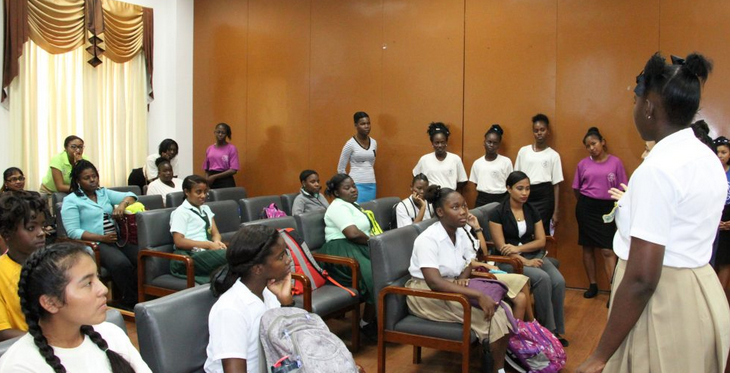When CNN’s Amanpour interviewed Bobi Wine the Museveni regime was ballistic. Image: YouTube screenshot.
Last week, the six-times Ugandan presidential candidate and incumbent, Mr. Yoweri Museveni who has been in power since 1986, canceled his campaign rally in Entebbe to attend a thanksgiving dinner with Uganda’s clergy at the Statehouse.
The pictures from the thanksgiving that graced the front pages of Uganda’s daily newspapers the next day showed that none of the guests at the thanksgiving observed COVID-19 prevention Standard Operating Procedures (SOPs).
In the mid-week, Evelyn Anite, the country’s state minister for finance and investment and privatization, held a rally in the Kamwokya slum that her regime has neglected since 1986. The pictures from Anite’s crowd where they discussed bedbugs, showed a massive crowd crammed into one another, and SOPS were not observed. Police did not disperse the gathering.
I have seen so many pictures showing the ruling National Resistance Movement (NRM) holding mass gatherings or showing people seated beneath tents without the six feet physical distancing. You do not see police dispersing people at the NRM events. The joke is totally lost on the police, the Election Commission (EC), and Mr. Museveni when you get into public transportation or walk into Kampala’s central business district. No one is observing SOPs anymore.
If upholding the SOPs to curb the community spread of the pandemic is a national priority, then the leaders of this country must be exemplary at observing it. The scrutiny that the police places solely on the National Unity Platform’s (NUP’s) presidential candidate, Robert Kyagulanyi, a.k.a Bobi Wine, is unrealistic and points to political persecution by the regime.
The Daily Monitor of December 11, 2020, carried an opinion piece by Presidential Adviser, Mr. Moses Byaruhanga. He seemed angry at everything. Byaruhanga claimed that the recent fatal encounters have resulted because Mr. Kyagulanyi’s team has failed to observe SOPs intended to contain the COVID-19 pandemic. Is Mr. Byaruhanga an honest man?
When elections were announced, the EC assured the nation that it was going to be a “scientific” one. By “scientific,” the country understood it as being remotely conducted, that is, by allowing all candidates equal amount of airtime and access to all the media–radios, private and public, TV, print media, and access to the internet to reach voters. Some were even happy that the Over The Top (OTT)—the taxes associated with online access—would be suspended for the period of the campaigns.
In Uganda, there are over 97 private FM radio stations and several TV stations. Of these media houses, over 90% are owned and controlled by the regime’s affiliates and members of the ruling clique with the other 10% belonging to cultural and religious institutions. The Uganda Communications Commission (UCC), the communications regulatory agency maintains such a tight grip on these media houses that it literally decides who speaks what on-air and when.
In the recent past, the regime particularly targeted the NUP party and its leaders for barricading from the media. In August, Bobi Wine and his entourage were teargassed in Mbale and blocked from entering a studio. In Lira, Gulu, and Kitgum, radio stations that hosted People Power—the movement of supporters of Bobi Wine before the NUP was founded—or NUP candidates were switched off air repeatedly and fined heftily.
The opposition was left with no options but to carry on campaigns using traditional means–public rallies, and the masses have responded. Ironically, the Electoral Commission (EC) approved all the rallies and meetings scheduled that Kyagulanyi has adhered to. The police still find it to unleash violence in curtailing Mr. Kyagulanyi’s events. Recently, opposition innovations such as online TV broadcast channels have also been hacked into by the regime’s affiliates.
When the celebrated CNN host Christine Amanpour afforded Mr. Kyagulanyi a media outlet, the regime was shocked because it comfortably believed the tyrant had choked the opposition out of the media. Byaruhanga took exception at Ms. Amanpour interviewing Mr. Kyagulanyi without offering a chance to an NRM official to offer their side. Byaruhanga’s allusion to Amanpour’s unprofessionalism suggests a sense of unmet morbid entitlement.
Certainly, Mr. Byaruhanga is not a deluded person; he is surely a self-deceived person, and that is how absolute power deforms. His NRM ruling party believes it’s professional, fair, and democratic to deny the opposition access to the media at home, and yet the party functionaries are not given equal attention on an international media outlet, then that becomes “unprofessional.” Amanpour has interviewed Mr. Museveni several times in the past without speaking to the opposition even when she knew that Mr. Museveni was a master obscurantist, and the skies never fell on CNN. Perhaps, this time, it is a signal that Mr. Museveni’s fortunes have changed.
Mr. Komakech is a Ugandan social critic and political analyst based in Canada. Feedback to: [email protected]












